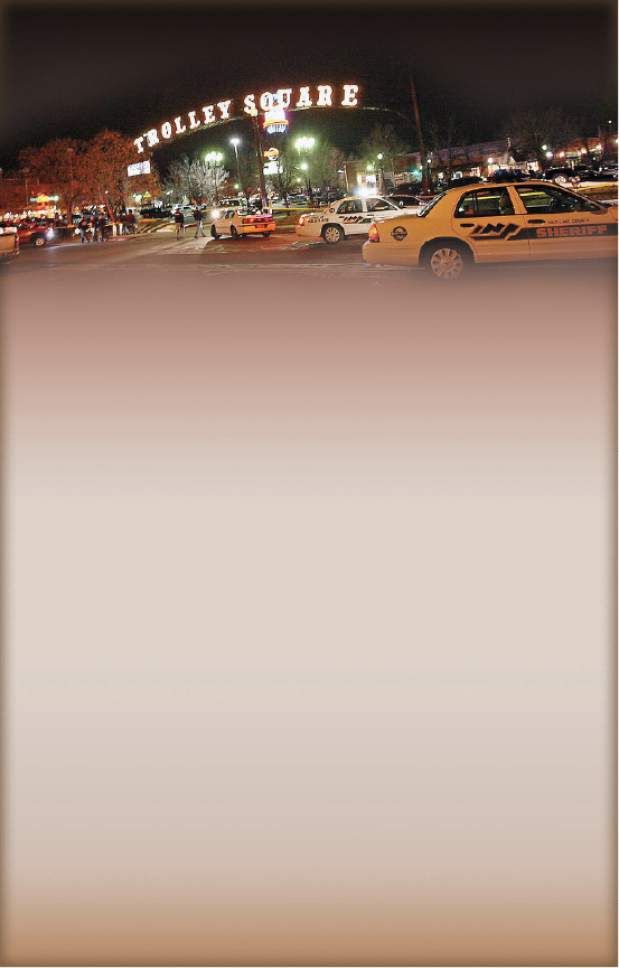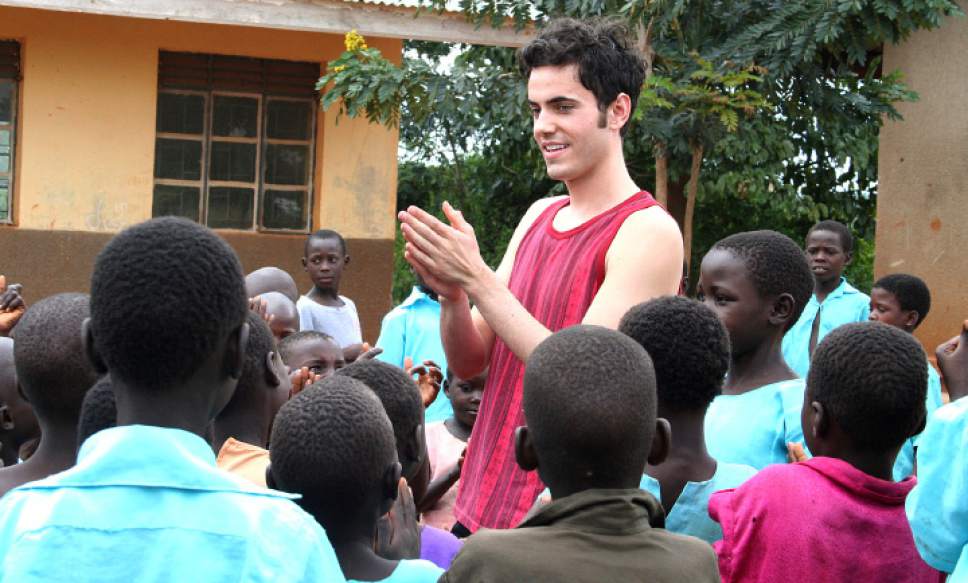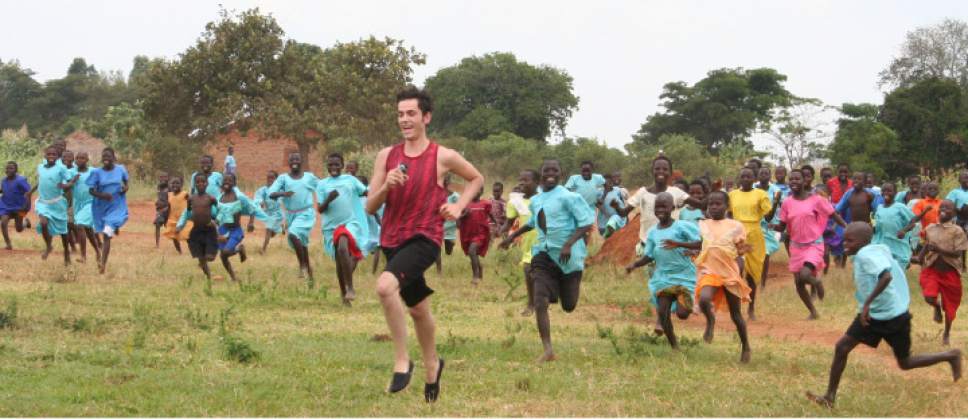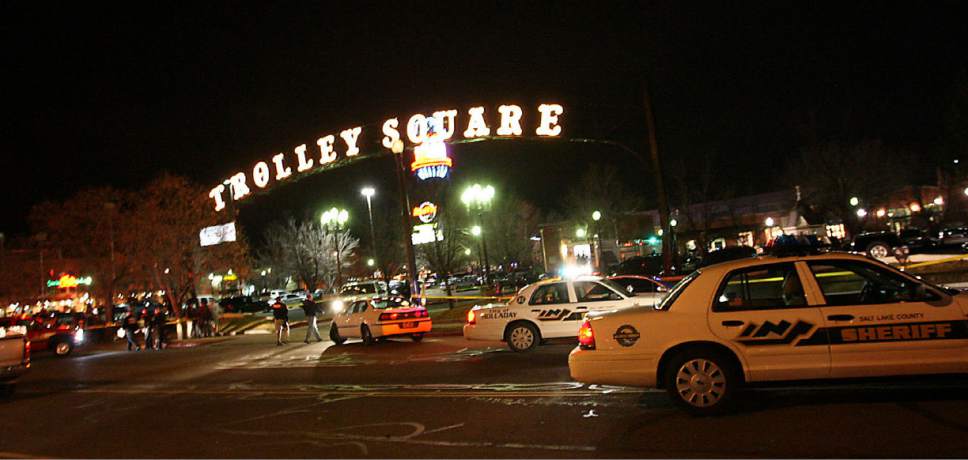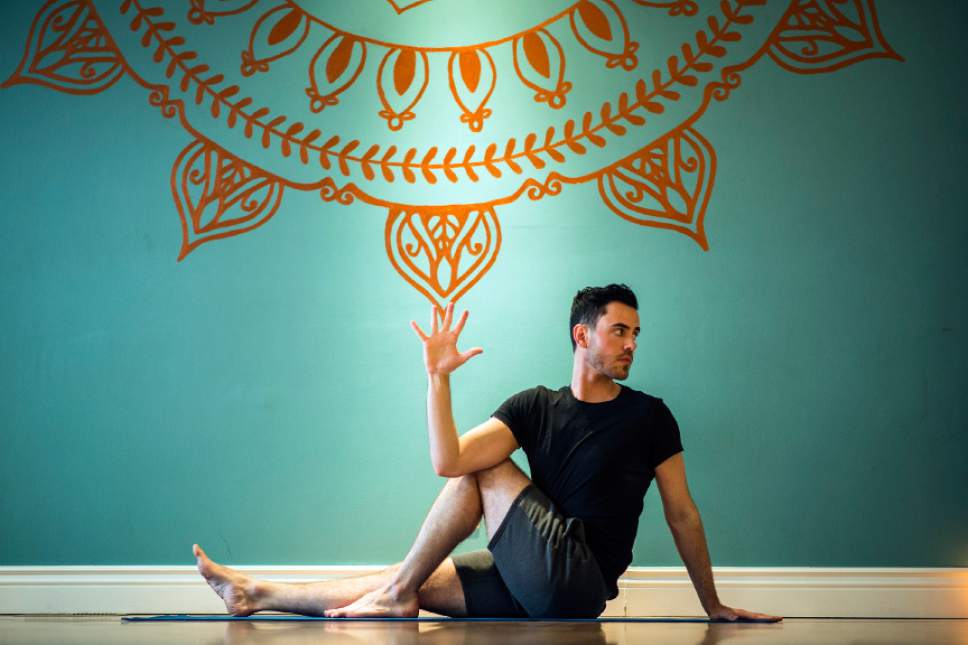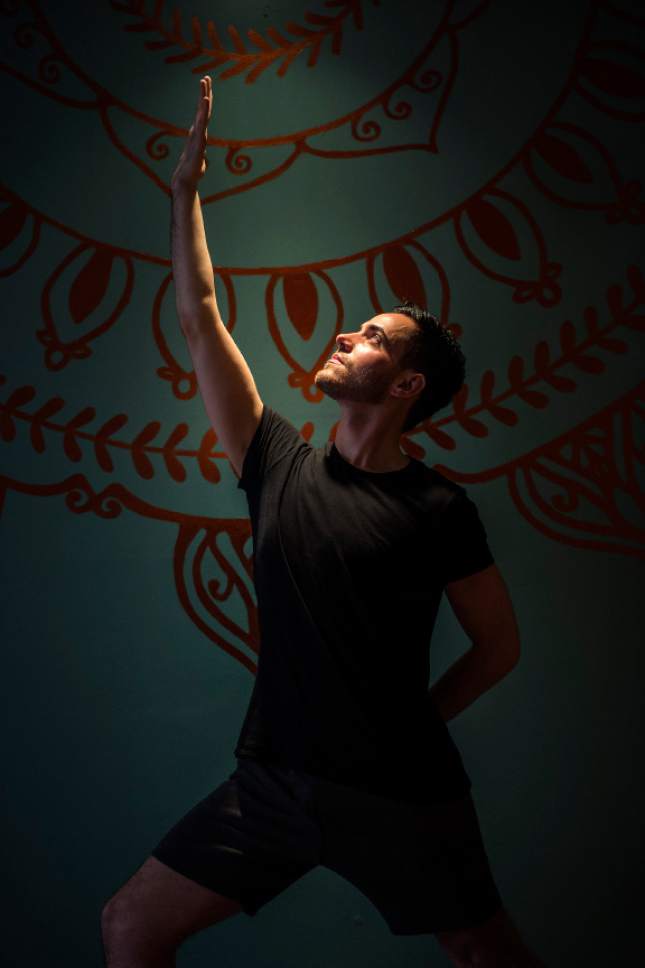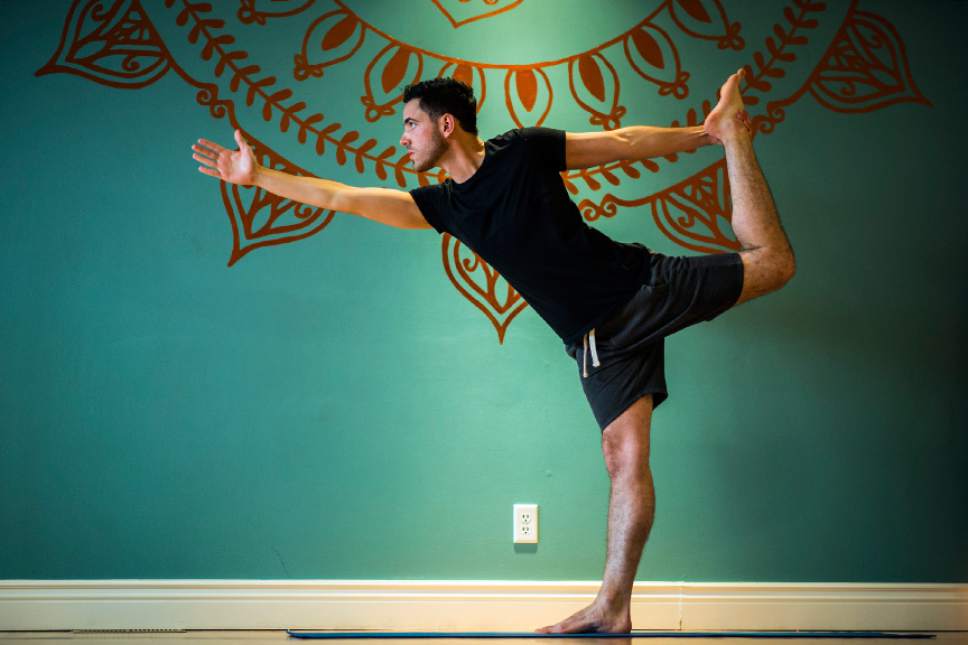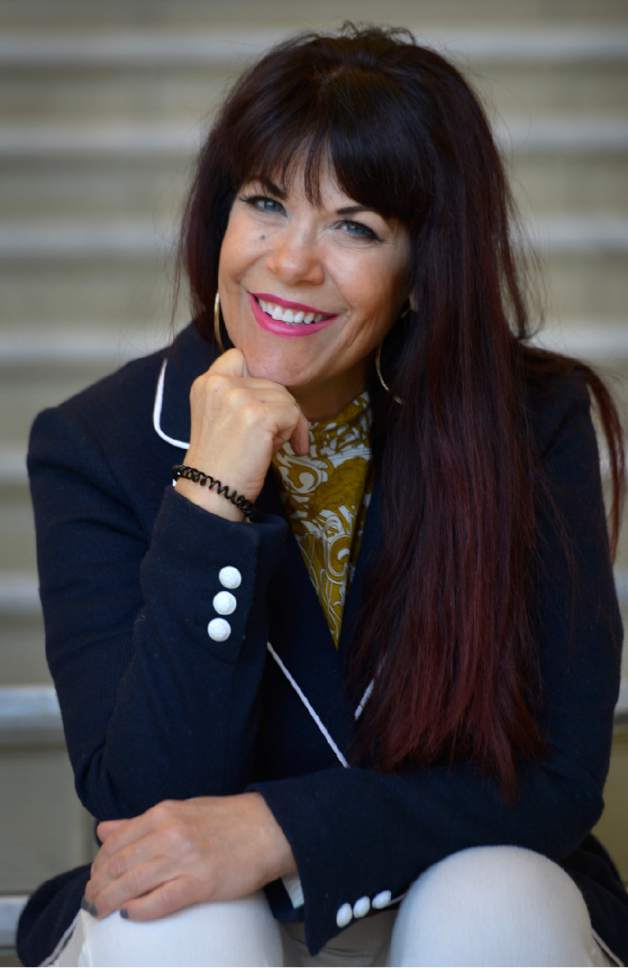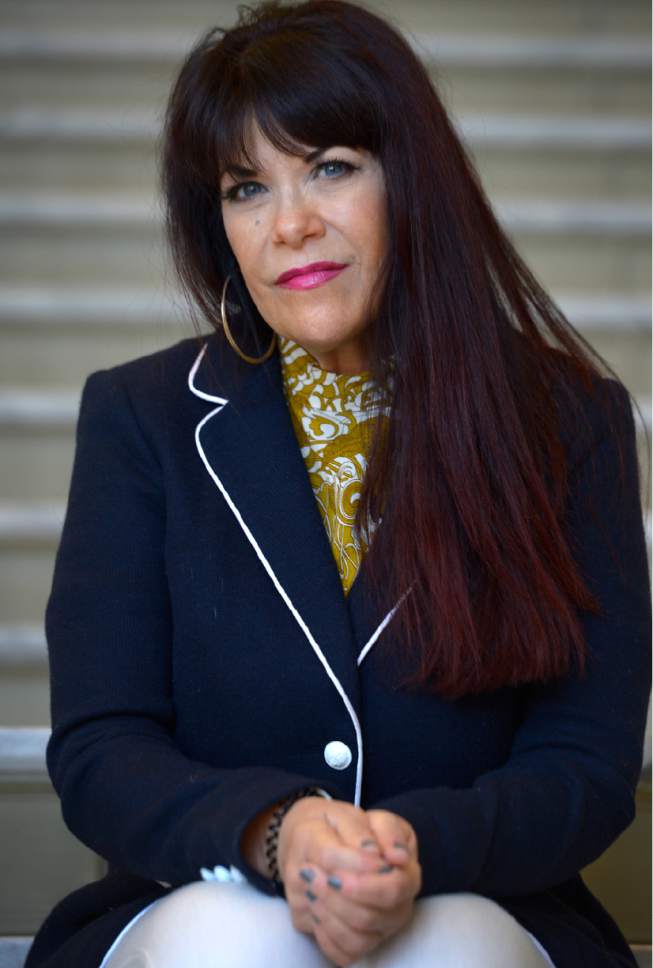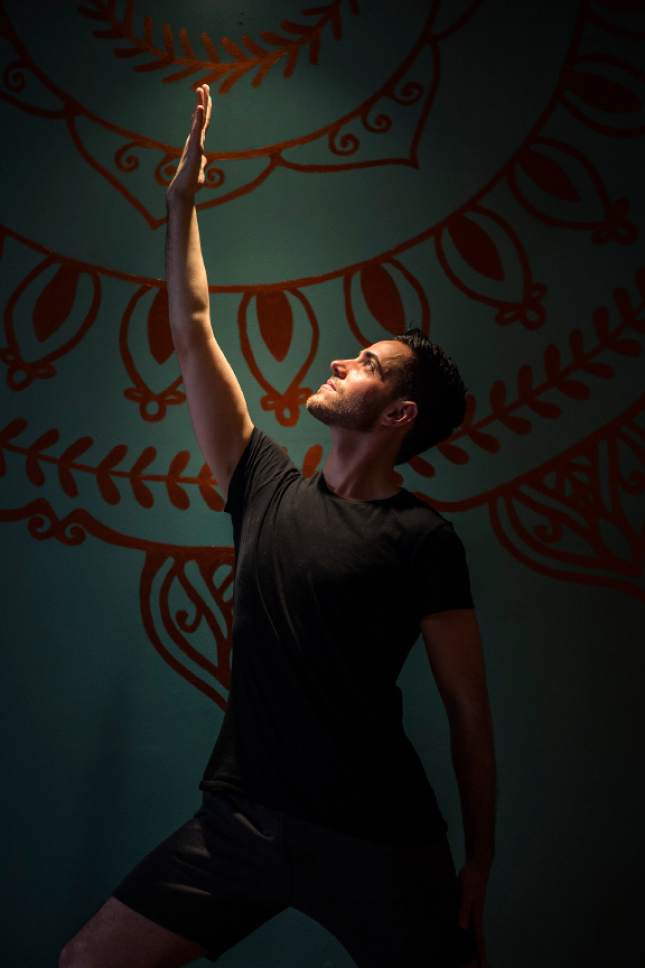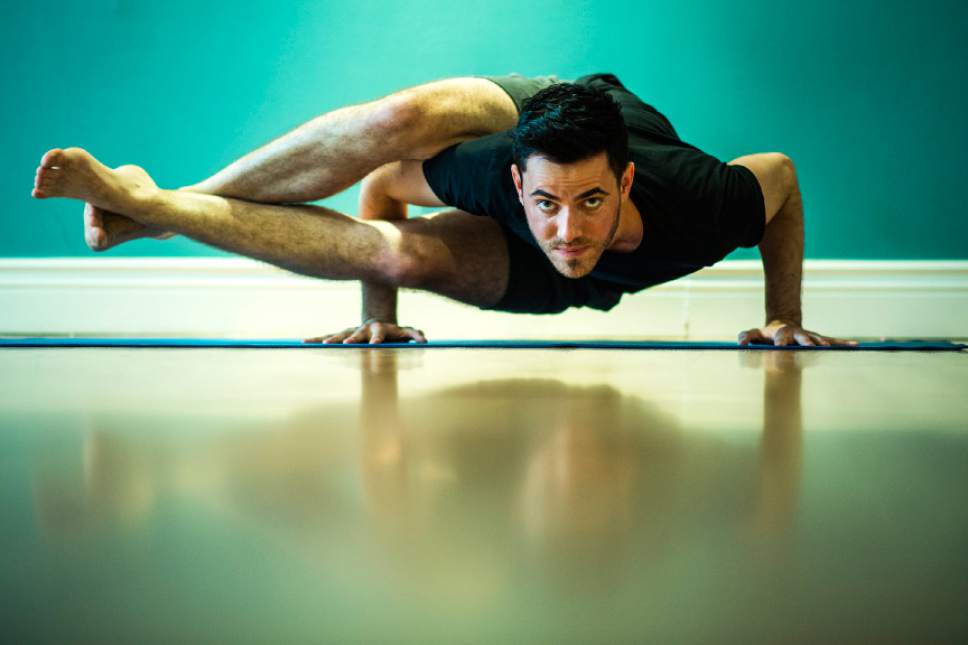This is an archived article that was published on sltrib.com in 2016, and information in the article may be outdated. It is provided only for personal research purposes and may not be reprinted.
Vickie Walker and her 25-year-old son, A.J. Walker, simply call it "the incident."
They mean that terrifying evening nine years ago, when a teenage gunman killed five people and wounded four others.
They mean the night Vickie lost her 53-year-old husband, Jeff Walker, and A.J., then 16, suffered life-threatening head injuries and their dual journeys took a detour.
They mean the Feb. 12, 2007, Trolley Square mass shooting.
Since then, mother and son have faced additional challenges. She lost her job, her insurance, her home. She was hit by a drunken driver and injured both legs. He had to relearn to read, speak, write and comprehend.
Together, they sought ways to find meaning through service. In 2010, they created Circle the Wagons, a nonprofit organization offering support, information and solace to victims of violence. That same year, A.J. spent several weeks in Uganda, providing humanitarian relief. A couple of years later, he served a full-time Mormon mission.
Here, Vickie Walker and Alan Jeffrey Walker offer a rare glimpse into the thoughts and spiritual understandings of their traumatic experience then, and where they are now.
This interview was conducted in their east Salt Lake City home. It has been edited for length and clarity.
What was life like before "the
incident"?
Vickie • I had a fairly typical upbringing and normal expectations for the future. My two younger brothers and I grew up in Granger [now part of West Valley City]. Raised in the [LDS] Church, I did the whole Mormon toeing-the-line thing. I went to Ricks College [now Brigham Young University-Idaho], came home and met and married a man I had gone to high school with. We did the appropriate Mormon thing — got married in the temple. About a year into it, I discovered that he had a bit of a "wandering eye." We tried to make it work for a couple more years, then it happened again. Fool me once, but don't fool me twice. I found myself in the mid-1980s, 26 and divorced. I felt like I was odd man out. I didn't know many divorced people my age. I had a hairdresser who had a friend and together they lined me up with Jeff. I really didn't look back.
Where were you living then?
Vickie • I was in Granger; he was from California but came to Salt Lake to find a "nice Mormon girl." Instead, he found me. [Laughs] He was divorced but had custody of his two young kids, which I think was indicative of the kind of person he was — impressive that he would even attempt to raise them as a single father. I think that speaks volumes for him.
Several years after we married, I was able to formally adopt Korrina and Jeremy.
I found out by the end of my first marriage that I would likely never have my own biological children, so when I married Jeff and had an instant family, I was absolutely thrilled. Thrilled, thrilled, thrilled.
I never really thought I would be a mom.
What was your marriage to Jeff like?
Vickie • As with most marriages, when you are young, you don't have experience. You have that Plan A in your mind that you do everything right and everything will turn out right. Then you have a steep learning curve. But we both had been married before, so Jeff and I felt we didn't have that learning curve. We knew which mountain we wanted to climb. A lot of things we let slide, because they just weren't that important. Throughout our lives, we had our ups and downs financially. The last five years he was here, though, he found a lot of financial success by selling annuities. He loved his job and traveled quite a bit. We moved into a big new house in South Jordan. It was his dream house that we built. Honestly, Jeff was beside himself he was so happy.
How about you?
Vickie • I had a big epiphany in that home. You spend your life in your 30s and 40s, trying to achieve. I remember lying in bed one night and thinking about the house and the pool, taking vacations, and having recreation vehicles — everything we had been working toward finally came to fruition. I thought, "This is so interesting, we finally achieved everything and eh." [Shrugs] I found it to be not as fulfilling as I thought it would be. That was really big for me.
Did you expand your family?
Vickie • We had the two kids, then one day we unexpectedly adopted a newborn, Alexandria, and right away I found out I was pregnant — I thought I had eaten bad oysters — with A.J., our little "miracle." I was shocked — Alex and A.J. were nine months and 10 days apart. It was so fun to have two babies so close in age. But when they laid A.J. on my stomach after he was born, I had another epiphany: I thought I would feel more connected to him because he was my "biological child." But I didn't. I felt as connected to Alex (and to Korrina and Jeremy) as I did to A.J. Some nice memories were made that last five years in South Jordan. By the time of the incident, the older two had moved on with their lives.
So take me through the Trolley Square experience. What do you remember?
A.J. • We had gone there looking for last-minute gifts [before Valentine's Day] for loved ones. We had bought dinner for the family at Desert Edge Brewery and were on the top part of the parking garage, almost to our car. The shooter, [18-year-old gunman Sulejman Talovic] was just arriving. I remember everything vividly. I didn't start to forget things until I was in the hospital, about to have brain surgery.
Vickie • My youngest daughter and I were home watching TV, and Jeff called to say they had picked up dinner and would be home in half an hour. As usual, I ended my conversation with "love you." It was just routine, but I am really grateful that I did. Then we saw the news crawl about a shooting at Trolley Square. I jumped into action, started calling their phones. I am not a negative person, so I started making excuses in my mind: They probably turned their phones off or teens don't answer the phone if they see it's their parents calling. Shortly after, our home phone rang. Caller ID said, "University Hospital." The woman on the line spoke quickly and she sounded panicked. She said they had A.J. and to hurry up and get up there. I asked if they had my husband. She said they did bring in a 52-year-old man [it turned out to be shooting survivor Stacy Hanson, who was 53], but didn't know if it was my husband since they are taking people to different hospitals. I called a neighbor and said Jeff and A.J. were at Trolley and we needed a ride to the U. hospital. From that point forward, it was really surreal. I was on autopilot. My daughter looked to me to see how to behave so I had to be calm.
Were you alert during the
shooting?
A.J. • The whole time; it was horrible. I remember everything. I remember him shooting, me running away. It was the worst feeling I have ever felt in my life. So dark and consuming and evil. After I had been shot, I ran for the underground parking. There were people in a car who saw me. I cried for help but they were scared so they drove off. I started to run through the garage to find a place to hide. I thought he was chasing me and heard another gunshot (which was the second gunshot at my dad) so I fell to the ground between two cars to hide. Once I realized I couldn't hide, I said a quick prayer, "Give me peace. Give me peace." Just then, another car pulled up and I jumped in and said, "We need to go, we need to call the police." I couldn't feel the left side of my head. I felt like I had a hole in my head. Blood everywhere. The girls in the car knew it was bad. They took me around the north side of Trolley to an ambulance.
Vickie • On the drive to the hospital, we went by Trolley and I had the sickest feeling in my stomach. But my optimism kicked in, and I tried to stay positive. When we got up there, lots of people surrounded us in the conference room. Pretty soon friends started showing up, my dad and brother. The conference room filled up. The doctor came in and told us the extent of A.J.'s injuries. His ear was shot up and he had received a number of shotgun pellets from the blast.
They didn't take them out?
A.J. • They couldn't do it without damage to my brain. Now, I can't get an MRI, because they're metal and it would pull them out. They've done CAT scans. A few years ago, we were at church and I thought I had a pimple or something at the back of my skull. I scratched it and a shotgun pellet fell into my hand.
Were you still awake when you got to the hospital?
A.J. • Yes. The first person I saw was my [Mormon] bishop. He gave me a priesthood blessing. After that, I felt calm and peaceful. When my mom came in and asked me where Dad was, I told her he was so smart, he pretended to be asleep.
You didn't know he was dead?
A.J. • No.
When did you find out he had been killed?
Vickie • I was in the hospital waiting room waiting for A.J.'s surgery to be completed. About 2 a.m., I was informed.
A.J. • I found out after surgery the next day.
What was it like the year after your husband was killed?
Vickie • While I was helping A.J. recover, which was tough, I was amazed at all the acts of kindness, big and small. Domino's delivered free pizza every Friday for a year. People sent flowers and notes, were incredibly generous. About 18 months after Trolley Square, a woman came up to me in a grocery store and gave me a hug. I can't tell you how much that little gesture meant.
A.J. • I spent 10 days in intensive care, 10 days in a regular hospital ward, and about 10 days in rehab — about a month in the hospital altogether. I had to learn to speak, read, write and comprehend all over again. A teacher from my high school came by three days a week through the summer and into my senior year to help me with my classes. She brought flashcards with pictures of animals and foods on one side and the names on the other. In so many cases, I recognized the items, but could not find the words. I lost short-term memory, organizational skills and peripheral vision on the right. Balance continues to be an issue. I graduated from high school and was going to attend Salt Lake Community College but realized how unprepared I was. So I got a job at a credit union as a sales rep. Sometimes I had to call my mom and ask her how to count. When I was 20, I took some classes at Westminster College.
Vickie • I was living in our South Jordan dream house, but eventually I lost it as part of the 2008 housing collapse. I came home one Friday to find an eviction notice on my door so had to get out. The day I moved, people in my Mormon ward showed up in droves to help me pack and move my stuff. I then rented a house in Sugar House. It was hard, but overall the move has been good. Then I was hit by a drunk driver, which later required knee replacements. Oh, I also lost my insurance.
What was your spiritual life like through all this?
A.J. • Growing up, going to church was a chore. I didn't have a testimony and was not a fan. I didn't have a testimony of [Mormon founder] Joseph Smith. I had faith and hope, and I believed in God, but I didn't pray all the time. My experience at Trolley helped me understand prayer more. In the hospital, I had an overwhelming sense of peace. The first week I felt a strong connection with my dad and loved ones who had moved on. I felt they were in the room. I felt safe. It was like a spiritual restart. I developed a testimony of prayer, but I didn't want to go on a mission because of my health challenges. Still, I felt something was missing, so I started to travel. I thought that could be my calling — to do humanitarian work for a few months. I started helping with the Navajo Nation down in the Four Corners. Then, in 2010, I went to Africa. Serving those people was the strongest I had felt the spirit to that point. It was a chance to think about something besides myself — putting their needs above my own. When I came home, I was on a spiritual high. I had been going back to church for a while, but now I had a desire to go.
Then I started to hear a voice in my head, saying, "You need to go on a mission, A.J." I pretended not to hear it. The voice in my head got stronger and stronger. I kept making excuses not to. As soon as I said "yes," I had an overwhelming sense of peace.
Vickie • Right after Jeff died, we had a friend from South Jordan, Tracy Mower, who drove to our house every Sunday and studied LDS scriptures with A.J. He stepped in as a surrogate dad to my son. He even taught him how to drive. He constantly thought about how he could help him. His words turned into actions.
A.J. • Yeah, he definitely helped me prepare for my mission. After I put in my papers, I told everyone that I would like to go to a Spanish-speaking mission, like to the Dominican Republic, where my brother served, or to Brazil, where my dad went. People were telling me there was no way because of my head injuries. When my mission papers came and I opened them, I started to read, "You've been called to serve in the San Diego, California Spanish-speaking Mission," I felt a huge, immense spirit, warm and peaceful, fall upon me. I knew it was right, where I needed to go, and I was happy. Then I looked up and saw my mom and she was wailing.
Vickie • I knew that Jeff had been a "visa waiter." When he couldn't get a visa to Brazil, he spent the first 14 months of his mission in San Diego.
A.J. • The exact same mission where my dad served, I was going there. It was exactly what I had hoped for. My prayers were answered.
What do you think of the gunman Sulejman Talovic today?
A.J. • I don't have either negative or positive feelings toward him. I do have a sense of sadness, but no anger. I forgive him.
Vickie • I saw a photo of his funeral in Bosnia [Talovic was shot to death at the scene], and a shot of him from above, lying in a casket. I was shocked at how young he was. He was a boy. And I thought, "I want to hate you. I should hate you, but I don't have it in me. If I had an ounce of hate, there would be no energy left to build a life for us — full and joyful."
What was your mission like?
A.J. • My favorite part of my mission was the MTC [Missionary Training Center], where I truly gained a testimony. It was hard because I had to relearn how to speak English, so having to learn Spanish was difficult. Up to that point, it was the strongest I had ever connected to God. It was intimidating because I had never felt those feelings before, so it was empowering and making me a better person.
What do you do now?
A.J. • I am going to the U., studying finance, and helping with the foundation. I also teach yoga. Looking back now at all the issues and trials and challenges I have faced, I can see how the Lord's hand has always been there to guide me, direct me or lift me up.
Vickie • Jeff was my life, and I didn't want to hover over all my children. A few years later, I was watching cable news and saw the Trolley incident listed in the top five "postal moments." I knew then that in order to make my life meaningful, I needed to take this experience and help others. I am also trying to fill a hole in my heart by doing it.
pstack@sltrib.com, Twitter: @religiongal


